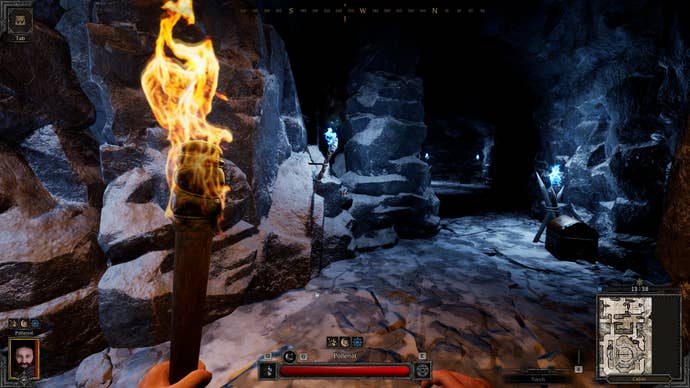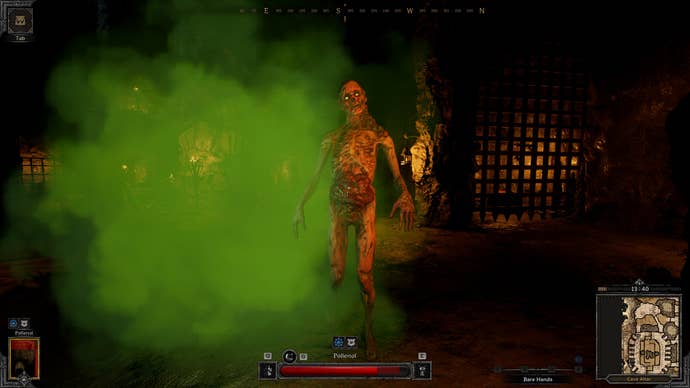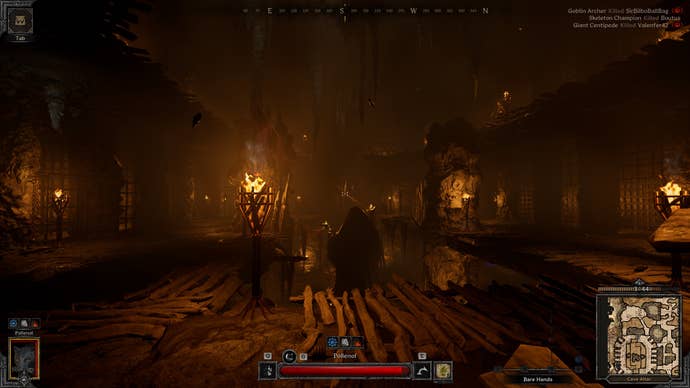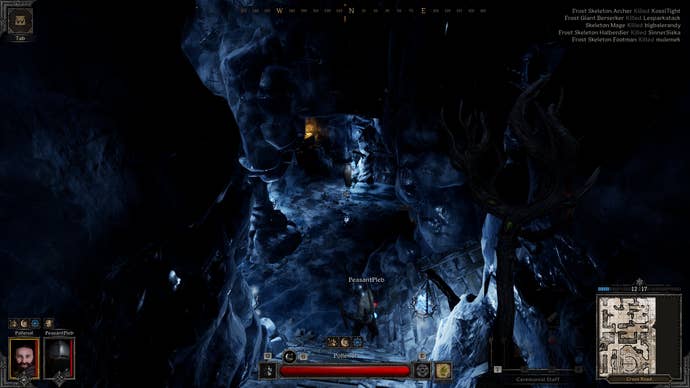Dark and Darker is a game about escaping dungeons.
And there’s a problem with that - or there should be.
Dungeons are so common in fantasy games that it’s hard to pay too much attention to them.

We’ve seen them all before, we know what they do.
But when was the last time we really re-examined what being in one would actually be like?
Dark and Darker does this, and it does it brilliantly well.

If you die, you leave with nothing but the experience points you earned.
The point is pressure.
You know, even before you begin, you’re never going to be safe.

You will need to move, but where?
So dark you won’t even see the chests next to you unless you light a torch.
You won’t see platforms or the missing parts of platforms either.

In terms of setting, Dark and Darker lives up to its name.
Light in the game, therefore, is valuable.
They’re a risk.

There’s no atmospheric music filling the experience; it’s just you and whatever sounds surround you.
It will tell you what’s around you and what dangers you might face.
Can you hear a flapping of wings or the muttering of a goblin?
Can you hear the bony creak of a skeleton?
Audibly, you’ll build a picture of what’s near.
Even silence speaks volumes because perhaps there’s a hidden enemy nearby.
Dark and Darker makes you painfully aware of the soundsyou’remaking too.
I don’t think I’ve played an RPG before where my own footsteps seemed so excruciatingly loud.
Never have I paid so much attention to the sounds I make.
In turn, this gives rise to a natural kind of stealth.
Not stealth in the sense of a coded mechanic, whereby you turn translucent and stalk around.
Stealth in the sense of staying in the shadows and crouching to muffle footsteps.
Stealth in the sense that armour choices are important because heavier armour makes more noise.
Monsters might not notice, but other players will.
The threat of them is always there.
Underpinning and amplifying these systems is the game’s inherent sense of difficulty.
Those creaky skeletons and muttering goblins are just as capable of killing you as other players are.
They’re not fodder as they often are in other games.
But this is a game of cautious exploration and seeking out any advantage you’re free to get.
Rushing ahead almost always ends in death.
You die but now you know how a certain enemy attacks.
Bit by bit, you build understanding.
They group with you and teach you how to play.
It helped a lot.
It’s as though an example has been set that everyone wants to emulate.
Because there’s no matchmaking in the game, or multiplayer lobby, Discord serves this function too.
People seem willing to feel out the game together - there’s a sense of supportiveness in the air.
Perhaps it’s there because it’s needed and lacking in the game itself.
I don’t know.
What I do know is that played together, Dark and Darker transforms.
Alone, I struggled.
With someone else, I progressed.
I had my first breathless escape from a dungeon.
I had my first taste of fighting other players, on purpose, and winning.
I felt the magic of Dark and Darker, and I liked it.
There’s nothing else like it.